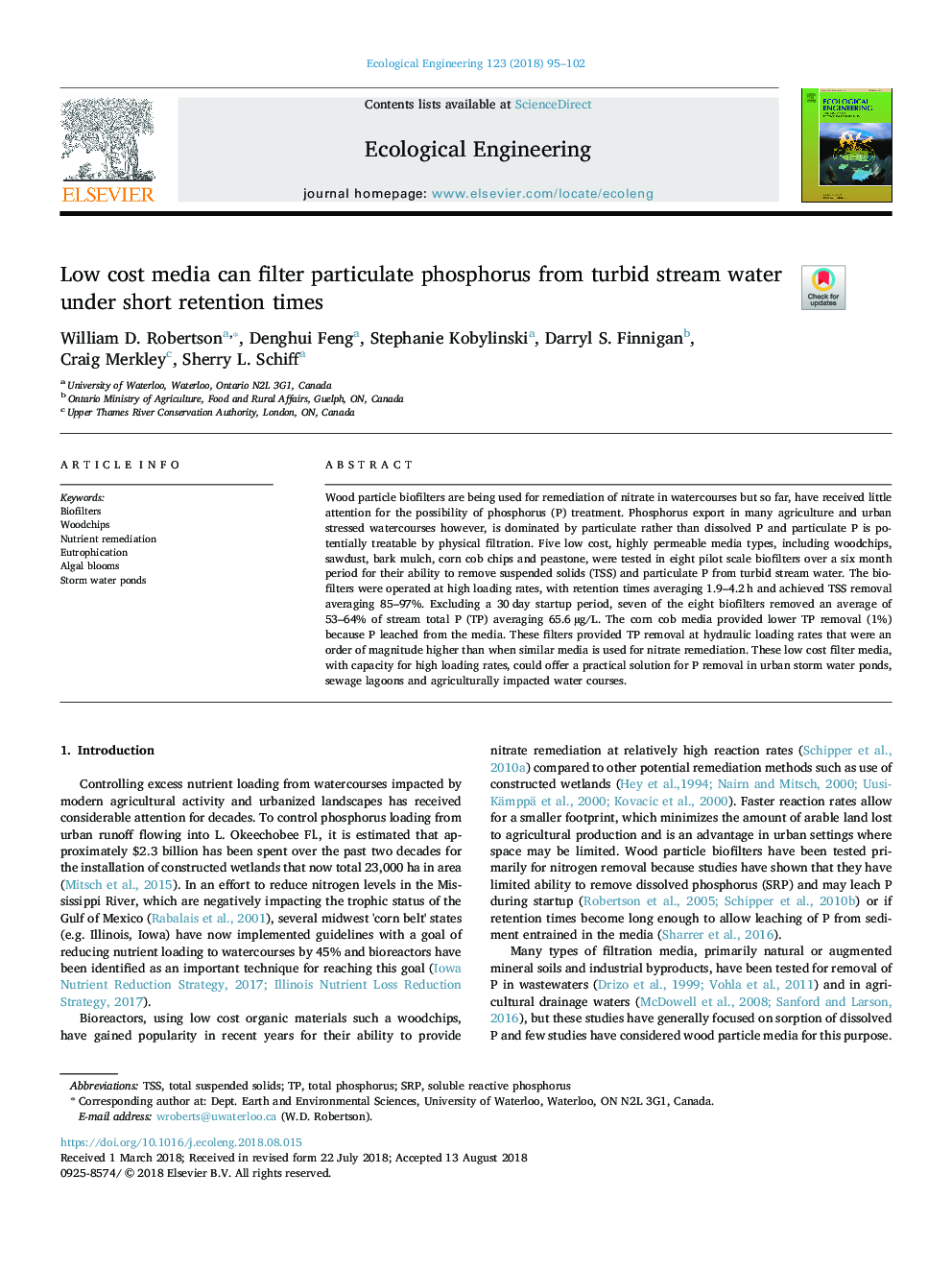| Article ID | Journal | Published Year | Pages | File Type |
|---|---|---|---|---|
| 10144349 | Ecological Engineering | 2018 | 8 Pages |
Abstract
Wood particle biofilters are being used for remediation of nitrate in watercourses but so far, have received little attention for the possibility of phosphorus (P) treatment. Phosphorus export in many agriculture and urban stressed watercourses however, is dominated by particulate rather than dissolved P and particulate P is potentially treatable by physical filtration. Five low cost, highly permeable media types, including woodchips, sawdust, bark mulch, corn cob chips and peastone, were tested in eight pilot scale biofilters over a six month period for their ability to remove suspended solids (TSS) and particulate P from turbid stream water. The biofilters were operated at high loading rates, with retention times averaging 1.9-4.2â¯h and achieved TSS removal averaging 85-97%. Excluding a 30â¯day startup period, seven of the eight biofilters removed an average of 53-64% of stream total P (TP) averaging 65.6â¯Âµg/L. The corn cob media provided lower TP removal (1%) because P leached from the media. These filters provided TP removal at hydraulic loading rates that were an order of magnitude higher than when similar media is used for nitrate remediation. These low cost filter media, with capacity for high loading rates, could offer a practical solution for P removal in urban storm water ponds, sewage lagoons and agriculturally impacted water courses.
Keywords
Related Topics
Life Sciences
Agricultural and Biological Sciences
Ecology, Evolution, Behavior and Systematics
Authors
William D. Robertson, Denghui Feng, Stephanie Kobylinski, Darryl S. Finnigan, Craig Merkley, Sherry L. Schiff,
